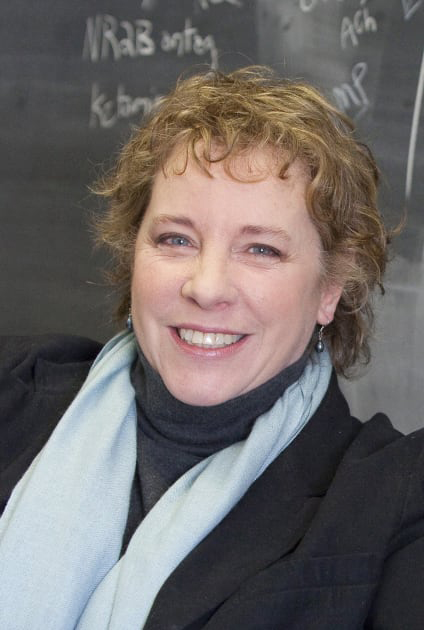
Courtesy of Yale News online
The Arnsten Lab at Yale has been selected as one of 16 labs worldwide to receive funding from the NeuroNex program for a project that examines how we hold thoughts in our brain for short periods of time without any stimulation.
The Next Generation Networks for Neuroscience, or NeuroNex, program is a National Science Foundation initiative that aims to capitalize on current technology to solve persisting questions in neuroscience. The grant will award over $50 million over the next five years to four different projects studying various aspects of brain evolution. Professor of neuroscience and psychology Amy Arnsten organized the grant application for the project, which involves labs across the world and aims to iron out how the brain develops connections that allow it to represent information without having sensory stimulation. The Murray Lab will also take part in the project, but did not initially respond to a request for comment.
“Usually the way research happens is you have one grant for one lab, and you are very much siloed in your own thinking and results,” Arnsten said. “It is really wonderful and relatively rare when you have the opportunity to work with people who have all different perspectives and approaches.”
As is the case with many labs in the United States, the Arnsten lab has had to adapt in the wake of the coronavirus pandemic. Due to travel restrictions, the members of the project are meeting remotely to discuss their findings. Meanwhile, the lab’s research assistants have been meeting for a journal club, organized by Fenna Krienen, a trainee from a lab at Harvard.
“The [journal club] is foremost a way to discuss the latest research relevant to the project, but I think it will also be an opportunity for us to practice presenting to a scientifically diverse audience,” Krienen wrote in an email to the News.
Julio Martinez-Trujillo, a professor at the Robarts Research Institute at Western University in Ontario, helped Arnsten bring the 16 labs together for the project.
“Amy and I had several meetings, and we strategized to find people working on a specific question,” Martinez-Trujillo said. “The plan is to allow them to go deeper into the questions they were already investigating.”
Martinez-Trujillo said the project would have great implications for future research, especially in the area of neurological syndromes.
“Working memory is the ability to represent things in the mind without [them] being in front of you. This relates strongly to [neurological] syndromes because one of the issues you see in, for example, Alzheimer’s and schizophrenia, is that the ability to remember and keep [things] in their mind for a few seconds degrades very quickly.”
When asked about the challenges the team has faced, all three scientists cited the difficulty of coordinating such a large scale project. Martinez-Trujillo said that finding collaborators is challenging, and Arnsten cited logistical challenges posed by team members inhabiting different time zones.
Still, the three researchers were emphatic about the advantages of working in a large group.
According to Arnsten, the multidisciplinary nature of the team — which includes labs that study behavioral neuroscience to transcriptional profiles and computational models — will allow for more diverse methods and analysis of data. Arnsten emphasized that these different perspectives would complement each other well.
“The fact that we started this consortium virtually may actually make it easier to develop working relationships across trainees at different institutions,” Krienen explained. “In that sense we may be on a stronger footing to take advantage of in-person interactions when they become possible again.”
Martinez-Trujillo mentioned the advantage of each lab having some independence in the project.
“It’s a unique opportunity, it’s a consortium where we keep our independence but we are aware of what each is doing,” Martinez-Trujillo said. “That allows us to be very flexible, dynamic and powerful.”
The National Science Foundation was founded on May 10, 1950.
Beatriz Horta | beatriz.horta@yale.edu







